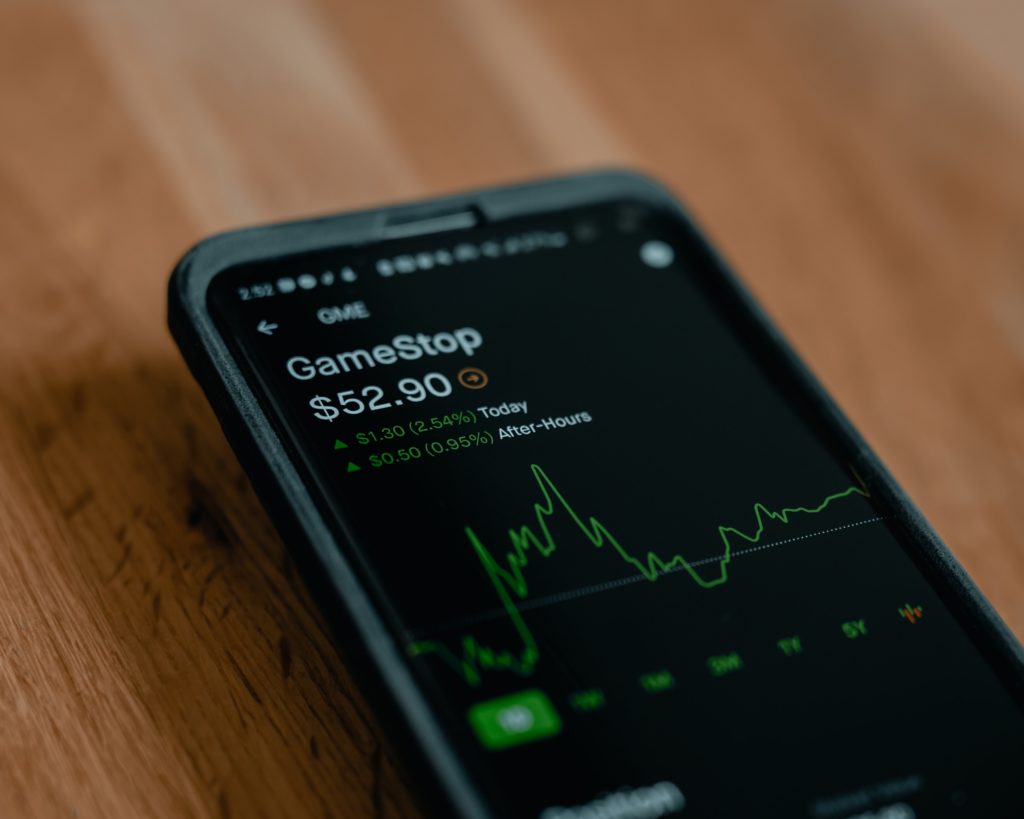By: Brendan Glynn

Robinhood is an online stock-trading application with a user base of over 10 million people.[1] On March 2, 2020, all of those users were unable to access the platform, allegedly due to Robinhood’s failure to adequately prepare itself for a surge in the number of users, and thus the userbase was taken out of the market on a day with the largest ever single-day point gain.[2] In response, a Florida resident filed a class-action lawsuit on behalf of all Robinhood users who lost the ability to trade on March 2.[3]
After two years, the Robinhood litigation has yet to reach class certification, and the District Court must now answer the tough question of what an appropriate damages model is. This is made especially hard by the fact that Robinhood, not wanting to go along with the plaintiff’s position that all users should be awarded damages, thinks damages should be awarded only to those users who were going to trade on March 2.[4] However, Robinhood does not have the data to determine who exactly those users are.[5] Instead of adopting the normal approach of using one expert at a time to resolve this issue, the court turned to a new evidentiary method known as hot tubbing.[6]
Litigation over complex issues with serious money at stake can drag on for years, as demonstrated by this case, and hot tubbing presents a convenient solution. By employing this method, the court forces experts to “testify and quarrel with one another at the same time. Under oath, in the courtroom, with the judge getting involved in the action too, the experts battle[] and refute[] one another back and forth.”[7] By having experts in the same room testifying at the same time, experts are both able to comment on other experts’ testimony while not being able to duck questions themselves.[8] Further, beyond just saving time, experience has shown that this method helps smooth out disagreements between experts.[9] With the pressure that comes from judges, lawyers, and other experts all in the same room, experts initially opposed to each other have been able to reach an agreement to the surprise of the court.[10]
While there is support for hot tubbing, not everyone agrees that there is a place for it in the United States legal system, with opposition mainly coming from those in favor of the traditional adversarial system.[11] As a part of this system, lawyers are in control of how they use their experts; whereas, adopting hot-tubbing entails lawyers relinquishing this control.[12] Notably, these hot-tubbing conferences are often conducted without lawyers present, leaving open the possibility that experts concede points their lawyers would prefer they did not.[13] While lawyers may be enticed by the potential cost savings from hot tubbing, they may be too wary of letting the court take control from them to support this evidentiary method.
At this point, there are no rules or regulations either permitting or prohibiting hot tubbing, and Federal Rule of Evidence 611 allows judges wide discretion in how to handle experts as long as the procedures are effective, protect the witness from harassment, and, most importantly, avoid wasting time.[14] With this last requirement, there is plenty of room for hot tubbing, especially in determining a damages model. On its face, Robinhood’s argument that only those affected by the outage should be awarded damages is reasonable, but, without the data to determine who those users are, this argument appears untenable. Thus, the Court has a high-stakes issue requiring significant expert testimony on its hands. Luckily, hot tubbing, with its time and cost-saving qualities, is uniquely situated to efficiently handle this issue.
[1] Philip Rosenstein, Robinhood’s System Outage Spurs Class Action Filed In Fla., Law360 (Mar. 5, 2020, 9:55 PM), https://www-law360-com.proxywcl.wrlc.org/articles/1250592/robinhood-s-system-outage-spurs-class-action-filed-in-fla- (noting the size of Robinhood’s userbase).
[2] Id. (describing what happened on March 2, 2020 and why it was important).
[3] Taaffe v. Robinhood Mkts., Inc., No. 8:20-cv-513-T-36SPF, 2020 U.S. Dist. LEXIS 55980, at *2-3 (M.D. Fla. Mar. 31, 2020) (explaining how this litigation began).
[4] Bonnie Eslinger, Robinhood Outage Fight Splashes Toward Expert ‘Hot Tub’, Law360 (Feb. 24, 2022, 10:03 PM), https://www-law360-com.proxywcl.wrlc.org/articles/1468236/robinhood-outage-fight-splashes-toward-expert-hot-tub-.
[5] Id.
[6] Dean Seal, Judge Orders Expert ‘Hot Tub’ In Robinhood Outage Suit, Law360 (Mar. 14, 2022, 9:21 PM), https://www-law360-com.proxywcl.wrlc.org/articles/1473691/judge-orders-expert-hot-tub-in-robinhood-outage-suit.
[7] See Adam Elliot Butt, Concurrent Expert Evidence in U.S. Toxic Harms Cases and Civil Cases More Generally: Is There a Proper Role for “Hot Tubbing”?, 40 Hous. J. Int’l L. 1, 12 (2017) (explaining some differences between hot tubbing and the normal expert hearing method); Concurrent Expert Evidence: Hot Tubbing in America? Experts Jump In, The Nat’l L. Rev. (Aug. 31, 2016), https://www.natlawreview.com/article/concurrent-expert-evidence-hot-tubbing-america-experts-jump (providing a description of what hot tubbing is like).
[8] Concurrent Expert Evidence: Hot Tubbing in America? Experts Jump In, supra note 7
[9] Id.
[10] Id.
[11] Butt, supra note 7, at 41 (describing why some American lawyers are pushing back against hot tubbing).
[12] See Concurrent Expert Evidence: Hot Tubbing in America? Experts Jump In, supra note 7 (describing how some lawyers do not prefer hot tubbing).
[13] Kate Krause, Hot Tubbing and Expert Conferences — Using Concurrent Expert Evidence to Streamline Construction Arbitration, 74 Disp. Resol. J. 81 (2019).
[14] See id. (noting the lack of rules and regulations concerning hot tubbing); Fed. R. Evid. 611.


